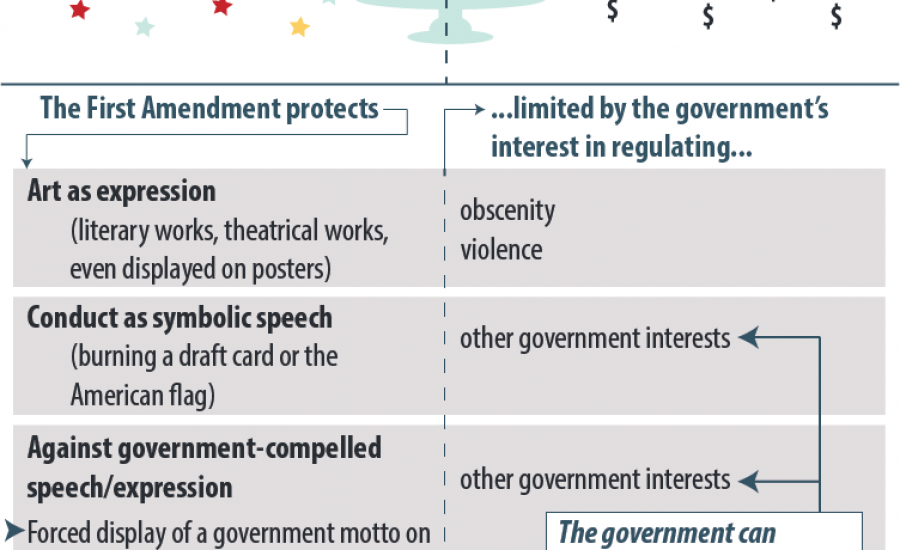
This case has been decided. See how it turned out!
At the heart of this case is a disagreement about same-sex marriage. People in this country are allowed to carry their own views and express their own views, as long as they aren’t causing harm to others.
The government can regulate against harm, including placing certain restrictions on expression when necessary. The First Amendment governs when government regulation of expression goes too far.
Case Background:
Colorado designated discrimination on the basis of sexual orientation a harm. In a state law, Colorado outlawed this type of discrimination within the sales of public goods. Masterpiece Cakeshop encountered the Colorado anti-discrimination law after refusing to sell a custom wedding cake to a same-sex couple. The couple sued the cake shop, and the court agreed with the couple: Masterpiece must sell a custom wedding cake to the same-sex couple if it sells custom wedding cases to the public generally.
Masterpiece’s View in the Supreme Court:
Masterpiece brings this case in the Supreme Court arguing that Colorado is violating its right to free expression. Masterpiece claims Colorado’s requiring it to make a custom wedding cake is forcing it to express the government’s view (a view in support of same-sex marriage) on its art. The cakes, Masterpiece argues, are art; they are inherently expressive; and this is a case of “Compelled Speech,” – which has a history in Supreme Court precedent.
Colorado and The Couple’s View: A disagreement before getting to the Compelled Speech Doctrine
What if Masterpiece Cakeshop had told the couple: We do not feel comfortable making a cake with two men at the top, but we can sell you a generic wedding cake.
Masterpiece did not do this. In fact, Masterpiece did not humor the conversation past the point of recognizing the couple was gay.
For this fact, Colorado and the couple argue that the case is not about Compelled Speech at all. Rather, it’s about the cake shop owner disliking same-sex couples and refusing to sell them a cake for their wedding, regardless of the artistic/expressionistic elements of the cake. This, Colorado argues, is about Masterpiece’s conduct, not about speech.
The Court’s Decision Tree
The Supreme Court may look at this case and decide it’s not about compelled speech, like Colorado and the couple argue. But more likely, the Court will evaluate it on grounds of Compelled Speech. If it comes to the Compelled Speech Doctrine, the big question is whether Masterpiece’s cake-making is “inherently expressive.” Our graphic describes the Compelled Speech question.
Cases Cited (examples of Compelled Speech):
- Wooley v. Maynard
- Hurley v. Irish-American Gay, Lesbian and Bisexual Group of Boston, Inc.
- Boy Scouts v. Dale
The “inherently expressive” rule:
- United States v. O’Brien (burning draft card)
- Texas v. Johnson (burning American flag)



